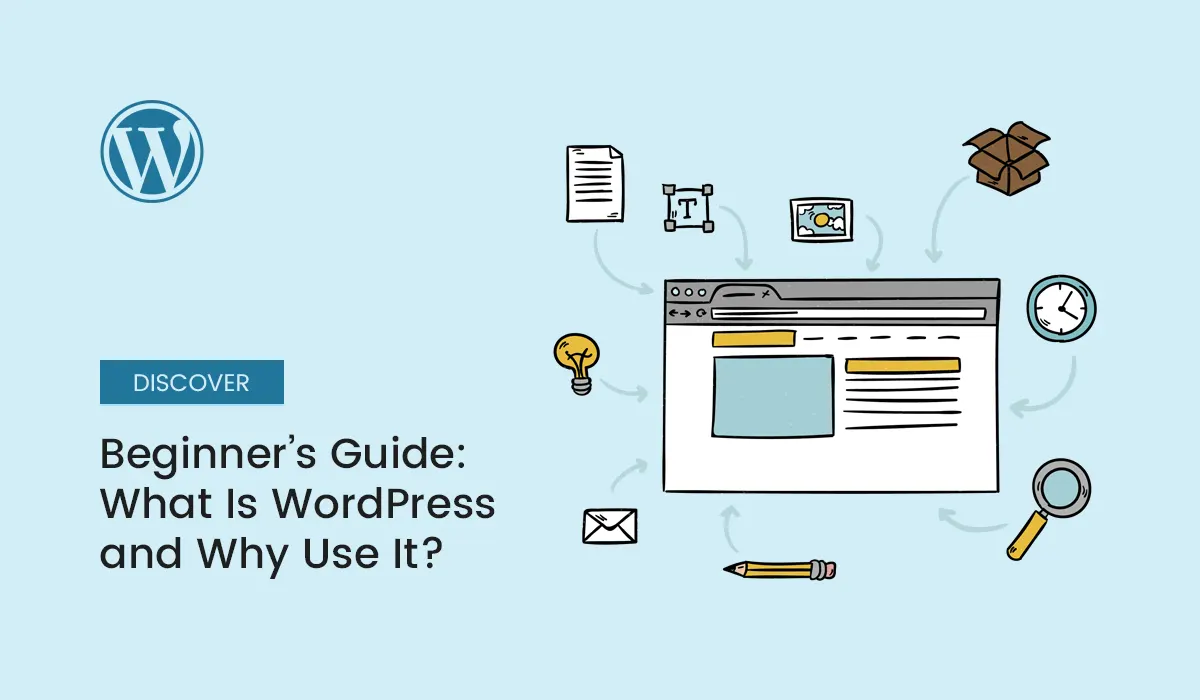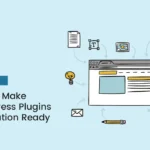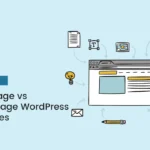Introduction
If you’ve ever thought about creating a website, chances are you’ve come across the term WordPress. Whether it’s blogging, building a portfolio, setting up an online store, or running a business site, WordPress is one of the most popular platforms in the world. In fact, WordPress powers over 40% of all websites globally.
But what exactly is WordPress, and why do millions of individuals and businesses choose it? This beginner’s guide will explain everything you need to know, from the basics of what WordPress is, to why it has become the go-to solution for website creation in 2025 and beyond.
What Is WordPress?
WordPress is a Content Management System (CMS) that allows you to build and manage websites without needing advanced coding knowledge. It is open-source software, which means it’s free to use and has a large global community of developers constantly improving it.
There are two versions of WordPress:
- WordPress.org (Self-Hosted WordPress): You download the software and install it on your own web hosting account. This gives you full control, customization, and ownership of your website.
- WordPress.com: A hosted solution where WordPress takes care of hosting for you, but with limited customization unless you upgrade to paid plans.
Most professionals and businesses use WordPress.org because it offers maximum flexibility, thousands of themes, and endless plugin integrations.
Why Is WordPress So Popular?
There are many reasons why WordPress has become the dominant CMS. Some of the most important include:
User-Friendly for Beginners
WordPress offers an easy-to-use dashboard, drag-and-drop page builders, and visual editors. Even someone with no coding skills can publish blog posts, upload images, or update content within minutes.
Highly Customizable
With thousands of free and premium themes (design templates) and plugins (add-ons for extra functionality), you can create any type of website—from simple blogs to advanced e-commerce stores.
SEO-Friendly
Search Engine Optimization (SEO) is critical for driving organic traffic. WordPress is built with SEO best practices in mind, and plugins like Yoast SEO or Rank Math make it even easier to optimize your content for Google rankings.
Mobile-Responsive
Most WordPress themes are mobile-friendly out of the box, ensuring your site looks great on smartphones and tablets, which is essential since more than 60% of web traffic comes from mobile devices.
Cost-Effective
Since WordPress itself is free, you only need to pay for a domain name and hosting. Premium themes and plugins can enhance your site, but the platform remains one of the most budget-friendly options for website creation.
Secure and Reliable
With regular updates and a massive developer community, WordPress remains secure against vulnerabilities. You can further protect your website with plugins like Wordfence or Sucuri Security.
Scalable for Growth
Whether you’re starting with a personal blog or launching a global e-commerce store, WordPress can handle it. Big brands like Sony Music, BBC America, and TechCrunch use WordPress for their websites.
Different Types of Websites You Can Build with WordPress
One of the biggest strengths of WordPress is its flexibility. Here are some examples of websites you can create:
Blogging Websites
Originally built as a blogging platform, WordPress remains the best choice for personal and professional blogs.
Business Websites
From small local businesses to large corporations, WordPress offers features for service pages, testimonials, contact forms, and more.
Online Stores (E-commerce)
With WooCommerce, the most popular e-commerce plugin, you can sell physical and digital products, manage payments, and track orders.
Portfolio Websites
Freelancers, designers, and photographers use WordPress to showcase their work with visually appealing themes.
Membership & Community Sites
You can create forums, membership platforms, and private communities using plugins like BuddyPress or MemberPress.
Educational Websites
With Learning Management System (LMS) plugins like LearnDash, you can build online course platforms.
WordPress.org vs. WordPress.com: Which Should You Choose?
Choosing the right version of WordPress depends on your needs.
| Feature | WordPress.org | WordPress.com |
|---|---|---|
| Cost | Free software; hosting needed | Free basic plan; paid upgrades |
| Customization | Full control with themes & plugins | Limited customization |
| Ownership | You own your site & content | Limited ownership; subject to WordPress policies |
| Best For | Businesses, blogs, e-commerce, growth | Hobby bloggers, beginners testing websites |
For long-term success, WordPress.org is the best choice because it gives you full freedom.
How WordPress Works (Step-by-Step)
- Get a Domain Name (example: mysite.com).
- Choose a Hosting Provider (like Bluehost, SiteGround, or Hostinger).
- Install WordPress (usually one-click installation).
- Select a Theme (free or premium).
- Install Plugins to add features like contact forms, SEO, and security.
- Create Pages & Posts such as About, Contact, Blog, and Services.
- Customize & Launch your website.
Advantages and Disadvantages of WordPress
Like any platform, WordPress has pros and cons.
Advantages:
- Free and open-source
- Huge theme and plugin ecosystem
- SEO-friendly
- Flexible and scalable
- Supported by a global community
Disadvantages:
- Requires regular updates
- Needs hosting setup (for WordPress.org)
- Can be overwhelming for absolute beginners
- Some premium themes/plugins may be costly
Why Use WordPress in 2025?
In today’s fast-changing digital landscape, WordPress continues to evolve. With its block editor (Gutenberg) improving every year, seamless integration with AI tools, and growing support for advanced e-commerce and membership features, WordPress remains the top CMS choice in 2025.
Whether you want to start a blog, build a business website, or launch an online store, WordPress offers everything you need to succeed.
Frequently Asked Questions (FAQs)
Q1: Is WordPress free to use?
Yes, WordPress is free software. However, you need to pay for a domain name and hosting.
Q2: Do I need coding skills to use WordPress?
No. Most tasks can be done without coding, though knowledge of HTML/CSS can help with customization.
Q3: Is WordPress good for beginners?
Absolutely! It’s one of the most beginner-friendly platforms, especially with visual editors and page builders.
Q4: Can WordPress handle large websites?
Yes, WordPress powers massive websites like TechCrunch, The Walt Disney Company, and Sony.
Q5: Which is better for SEO: WordPress.com or WordPress.org?
WordPress.org is better because you have full control over SEO settings and plugins.
Conclusion
WordPress is more than just a website builder—it’s a complete ecosystem for building, managing, and growing an online presence. Whether you’re a beginner launching your first blog or a business owner expanding your brand, WordPress is the most flexible, reliable, and cost-effective choice.
Start your online journey today with WordPress—the world’s most powerful and beginner-friendly CMS. Explore this Beginner’s Guide to WordPress and build your dream website now!



